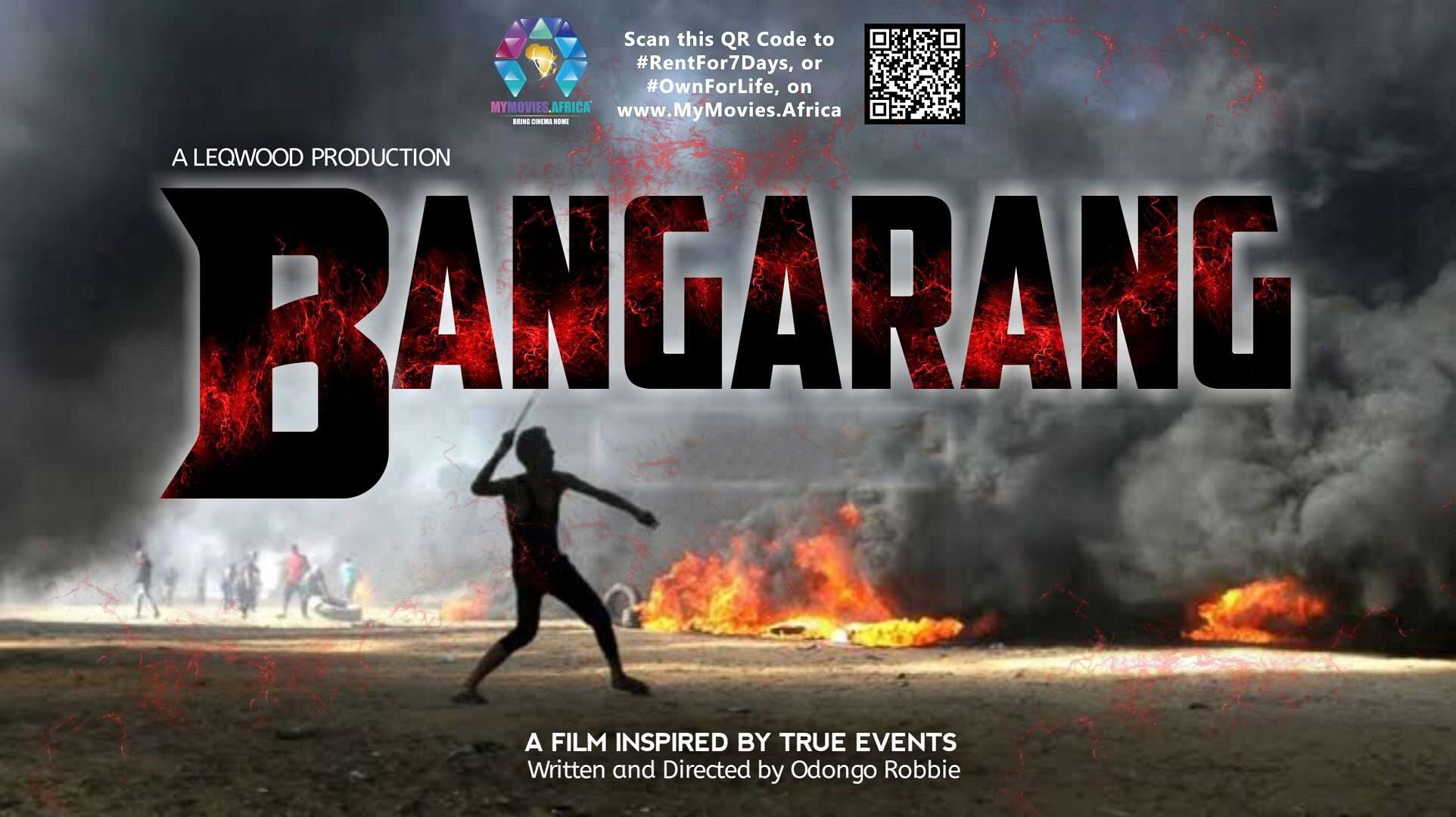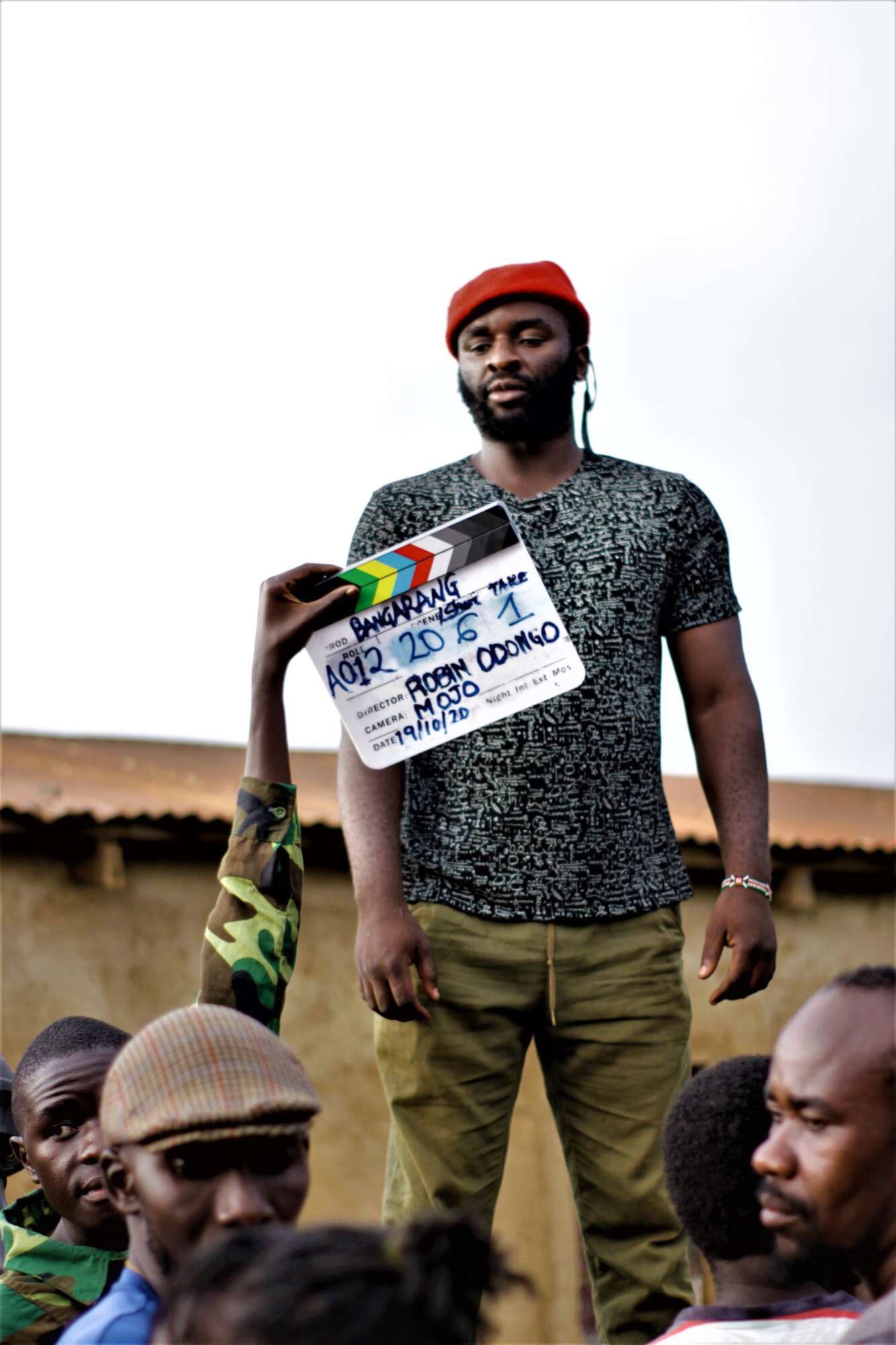Kenyan filmmaker’s tribute to Baby Pendo shines on international stage
Baby Samantha Pendo.
The name carries a certain serenity, but it also evokes painful memories for many Kenyans.
This six-month-old infant became an enduring symbol of tragedy when she tragically lost her life during a police raid on her parents’ home in Nyalenda, Kisumu, in the aftermath of disputed presidential polls.
Also read: A flower was uprooted from my garden and it cannot be replaced – Baby Pendo’s mother – VIDEO
Even six years after her heartbreaking death, Baby Pendo’s story continues to resonate, and a film inspired by the events surrounding her passing continues to earn accolades from audiences across Africa and beyond.
The film, titled “Bangarang” in honour of the late infant, has garnered over 40 award nominations, with the latest being from the Africa Film Festival. The festival is scheduled to take place in Atlanta, USA, from September 21 to 24 and from October 7 to 8.
When filmmaker Robin Odongo first conceived the idea of scripting “Bangarang” in the aftermath of the 2017 Post Election Violence (PEV), he was apprehensive due to the sensitive nature of the subject matter.
However, during an interview at the Nation Media Group offices in Kisumu, Mr Odongo confessed his astonishment at the warm reception the film received since its official premiere in 2021.
“Being nominated for the Atlanta Festival awards is one of my biggest achievements. I am praying that we win and bring the award home,” expressed Mr Odongo.

“Bangarang” is currently accessible on international platforms, including Netflix, Amazon, VIU (a South African platform), and My Africa Movies (a Kenyan platform available worldwide). Locally, it has been featured on Kenya Broadcasting Corporation (KBC), Mnet Movies Africa, and several local television stations.
Mr Odongo approached Baby Pendo’s parents to explain his idea for the film, and they were impressed by the project, grateful that their daughter’s story was being shared with the world in a meaningful way.
Also read: Baby Pendo’s parents find justice in court for her killing, and joy in rainbow baby boy
This self-taught scriptwriter and director believes that “Bangarang” received more attention than his previous three films because of the relevance of its subject matter.
“I have scripted four movies, and Bangarang surprised me the most. For the first time, I got awards beyond Kenya. The movie even took me outside Kenya for the first time,” he reflected.
Mr Odongo’s journey to making “Bangarang” was deeply personal.

He had lost three friends during the 2007 PEV, and in 2013, he was involved in a motor vehicle accident in Kisumu during another outbreak of violence, resulting in a severe injury to his right hand.
However, a chance encounter in 2017, while working as a subordinate staff member at the Aga Khan Hospital in Kisumu, would become the catalyst for “Bangarang.”
He came across a six-month-old baby fighting for her life in the hospital’s intensive care unit (ICU).
The next night, when he returned for his shift, the infant, Baby Pendo, had tragically succumbed to injuries sustained during the 2017 PEV.
“She was a beautiful baby and did not deserve to die, I realized that a number of things happened amid the chaos but never made it to the mainstream media, the best way I could address this as a filmmaker was to do a film inspired by the young girl’s story,” said Mr Odongo.
Moved by this poignant story, Mr Odongo felt compelled to create a film inspired by the young girl’s tragic ordeal. Due to financial constraints, it took him six months to write the script and three more years to shoot it.
Also read: Kisumu based movie selected for prestigious Cannes Film Awards 2023
Mr Odongo, a hospitality graduate, estimated that he needed Sh12 million for a 30-day shoot in Kisumu County while earning a monthly salary of only Sh15,000.
In 2020, he successfully applied for a grant from the Kenya Film Commission (KFC) through its Film Empowerment Programme.
Out of 72 applicants, KFC selected 12 filmmakers, awarding them a total of Sh25 million for development and production. Mr Odongo and his team worked with a budget of Sh4 million, adjusting the shooting schedule to 14 days.
The one-hour, 28-minute film titled “Bangarang,” a Jamaican slang term for chaos or lack of peace, draws inspiration from events during the 2007, 2013, and 2017 general elections.
To fit the budget, Mr. Odongo revealed that they had to shoot some scenes four times a day, leaving the cast members fatigued.
Another challenge they faced was the fear of how the project would be received due to its sensitive subject matter.
Despite the apprehension, Mr Odongo was determined to tell the story and ensure the message reached the audience, especially before the 2022 elections.
The county government of Kisumu stepped in to offer support by allowing the filmmakers to shoot in designated areas for free.
Also read: Slain Pakistan journalist’s body was handed over to his family with a bullet lodged in the chest

“Bangarang” tells the story of Otile, a struggling boda boda rider who remains jobless a decade after earning a second-class honours degree in automotive engineering.
When violence erupts during the disputed Kenyan presidential elections, Otile joins other rioters in the streets of Kisumu to express his frustration with the government’s perceived mismanagement, which he blames for his unemployment.
In a fateful turn of events, Otile seeks refuge in Dan’s house while fleeing anti-riot police. The police trace him and brutally assault everyone in the house, including Dan’s six-month-old child, Baby Joy. Fearing false implications of Baby Joy’s death, Otile goes into exile.
Mr Odongo shared that the cast members were eager to participate in the film, with many having been directly or indirectly affected by the violence portrayed in the movie.
Some had experienced the violence firsthand during the 2007 and 2013 elections in Mathare, Nairobi, and Kondele, Kisumu.
Even before its official premiere in 2021, “Bangarang” had garnered significant attention, earning multiple selections at film festivals and numerous award nominations.
The film has already secured several awards, including Best African Feature Film in Durban, South Africa, and Best East African Film in Uganda. In Kenya, it has earned recognition as the Best Film on Human Rights Education at the Lake International Pan-African Film Festival (LIPAFF), as well as accolades for Best Director and Best Feature at the Coat Film Festival and Swahili Festival, among others.
Mr Odongo shared his experience of being in Russia recently.
“Last month, I was in Russia where Bangarang, alongside two other African movies, had been selected for a possible collaboration of African Russian movies,” he says.
Hailing from Bondo in Siaya County, Mr Odongo’s journey as a filmmaker began in 2005 when he started acting in set book plays. Alongside his acting career, he enrolled in YouTube courses, attended film workshops, and occasionally wrote scripts, seeking feedback from friends. With each script he wrote, he continued to refine his skills.
Despite the film’s successes, Mr Odongo feels that “Bangarang” has not fully achieved its goal of raising awareness about the consequences of PEV.
The film primarily targets youth, politicians, small-scale traders, and those from informal backgrounds who are often directly affected by the chaos.
Mr Odongo explained that, due to the limited cinema culture in Kenya, many people, especially those in marginalized communities, have been unable to watch the movie for free due to financial constraints.
Nevertheless, he remains committed to spreading the film’s message as far as possible.
“There are people whom I would love to have watch the movie for free, but this has not been possible due to financial constraints,” he said.
Also read: How ethnic bashing almost stopped Baby Pendo’s fundraiser



